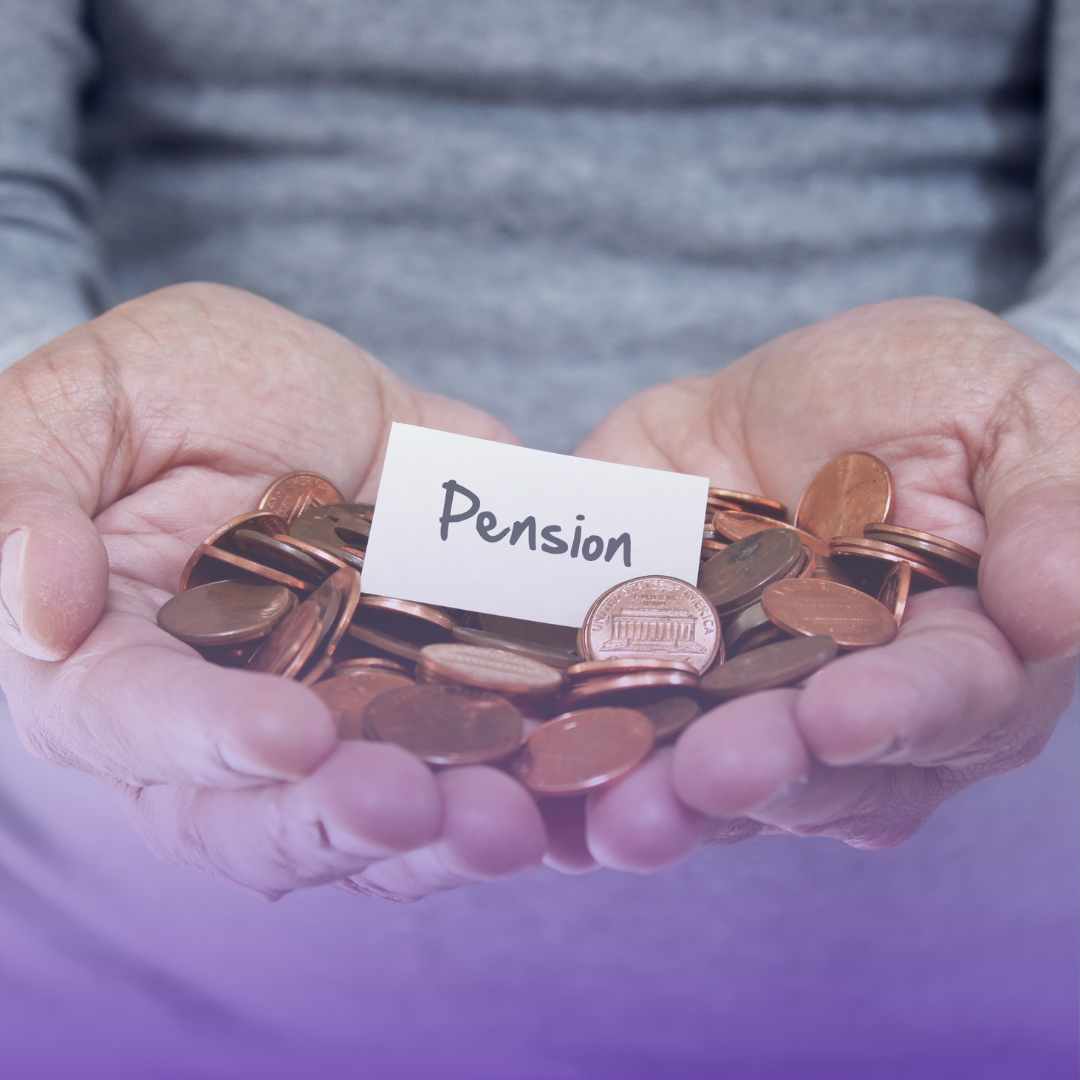When people think about retirement, many assume the State Pension will cover everything, so they put off retirement planning. But years later, they often discover the State Pension doesn’t stretch to the life they pictured, things like keeping up with bills, enjoying trips, or treating the grandkids. The truth is, relying on it alone can leave a gap between what you’ll have and what you’ll need.
Retirement planning is essential, and understanding a few basics makes it far easier to build a plan that actually works for you. In this guide, we’ll clear up the key points about the State Pension and private pensions so you can see how they fit together and start setting up a retirement plan that’s realistic, flexible, and truly yours.
What is State Pension?
The State Pension is a weekly payment from the Irish government when you reach pension age (currently 66) and have enough PRSI contributions. It’s not means-tested if you qualify for the contributory version, which means you can still get it even if you also have other income.
The State Pension is a great base for retirement income, but it might not be enough to live comfortably on its own. As of 2025, the maximum contributory State Pension is €289.30 per week.
Do the maths: is that enough to cover your basics like bills and groceries and still leave room for weekend treats, dinners out, a short holiday, or helping the grandkids? For many households in Ireland, the answer is no, especially with prices still running high.
Ireland is now the second most expensive country in the EU, so every euro has to stretch further. That’s where a private pension can back you up, giving you more breathing room and helping you keep your lifestyle in retirement.
What is a Private Pension?
A private pension is money you (and sometimes your employer) put aside and invest for the future. You’re building your own retirement pot over the years, and what you end up with depends on how much you contribute, how long you invest, fees, and market performance.
Unlike the State Pension, you have more control over how much you pay in (within limits), the investment approach, and when benefits start, subject to the plan’s rules.
Why Should I Have a Private Pension?
First, the State Pension on its own may not be enough for the lifestyle you want. Second, a private pension lets your money grow over time through compound growth, small, regular contributions can add up.
And when you retire, most plans let you take up to 25% of your pot as a tax-free lump sum (within Revenue rules), which can help with significant costs, clearing debts, or simply enjoying life.
Read our full article that explains why having a private pension is a smart move.
Types of Private Pensions
Occupational pension
It comes through your job. Occupational pensions are provided by employers and usually come in two types: defined benefit (DB) schemes, which promise a set payout in retirement, and defined contribution (DC) schemes, where your final pot depends on what you and your employer pay in and how the investments perform.
A big plus is employer matching; if you contribute, for example, 5% of your salary, your employer might put in 5% too. That’s essentially free money for your future. Learn more about Occupational Pension Schemes.
PRSA (Personal Retirement Savings Account)
This type of pension is personal and portable. Handy if you change jobs or are self-employed. Read more about PRSAs.
Personal Retirement Bond (PRB)
Sometimes called a Buy-Out Bond, lets you move the value of your pension into a policy in your own name when you leave an employer’s scheme. You’ll get a Leaving Service Options Form from your former employer’s occupational pension, explaining your choices.
The money stays invested in the PRB until you retire, and then it’s used to provide your retirement benefits. Learn more about PRBs.
AVCs (Additional Voluntary Contributions)
They let you top up an existing pension if you want to boost your future income. Read more about AVCs.
Be smart with your money. Get a personalised quote today!
How do Private Pensions actually work?
You put money in regularly or in lump sums, and it’s invested for long-term growth. Over time, compound growth can turn steady contributions into a meaningful pot. If you pay income tax, your contributions usually qualify for tax relief (within Revenue limits and age-related caps), so the real cost of saving is lower than the amount going into your pension. That’s a powerful boost.
For example, if you’re in the higher 40% tax band and contribute €1,000, you could get €400 in tax relief, meaning it effectively costs you €600 to add €1,000 to your pension. (If you’re on the standard 20% rate, the relief would be €200.) The combination of tax relief, time in the market, and compounding is what helps a private pension grow into a strong income source for retirement.
Will a Private Pension affect my State Pension?
No. If you qualify for the contributory State Pension, having a private pension doesn’t stop you from getting it. They’re designed to work together: one gives a guaranteed baseline (subject to government rules), the other adds flexibility and potential for more income.
When is the best time to start?
The simple answer: as early as you can. Time is the secret ingredient. Starting small and staying consistent often beats waiting for “the perfect moment.” Even if you’re starting later, it’s still worth it, just be realistic about contributions and goals.
What happens to my private pension if I die?
It depends on the type of pension and whether it’s before or after you retire. Private pensions usually let you name beneficiaries so value can pass to your loved ones (tax may apply).
Learn more by reading our article: Do You Know What Happens to Your Private Pension Plan When You Die?
What if I leave my job?
No panic. If you’re in an occupational scheme, you’ll typically have options: leave the pension where it is, transfer it to a new employer’s scheme, move it to a PRSA or a Personal Retirement Bond, or consolidate pots.
The “best” choice depends on fees, investment options, access rules, and your plans. Get advice before moving anything; small differences in charges and flexibility can matter a lot over time.
Read Our Articles
We’ve put together plenty of articles to guide you through key financial decisions. You might like the following:
- Why a Private Pension in Ireland Is Smarter Than You Think
- Setting Up a Private Pension in Ireland
- 6 Reasons to Review Your Pension This Year
- 7 Smart Ways to Use Tax Relief to Grow Your Pension in Ireland
- What to Do 5 Years Before Retirement
- The Essential Guide to Pension and Retirement Planning
- Private Pension Myths in Ireland
- Do You Know What Happens to Your Private Pension Plan When You Die?
Be smart with your money. Get a personalised quote today!
Get a Pension and Retirement Planning Quote
Pension planning can be daunting, but we make it simple. You can have a clear, personalised strategy that shows your cost options, potential tax relief, and what your pension could be worth at retirement.
Get a quote today, we’re happy to help you build a retirement strategy that works for you. We’ll provide clear, personalised information so you can make confident, informed decisions about your financial future.
We provide a wide variety of financial services, such as mortgages, serious illness cover, pensions, financial planning, health insurance, and savings & investments.
Share this post
All our content has been written or overseen by a qualified financial advisor. However, you should always seek individual financial advice for your unique circumstances.
Warning: Past performance is not a reliable guide to future performance.
Warning: The value of your investment may go down and up.
Warning: If you invest in this product, you will not have any access to your money until you retire.
Warning: If you invest in this product, you may lose some or all of your investment.
Warning: This product may be affected by changes in currency exchange rates.



